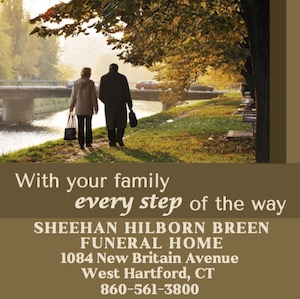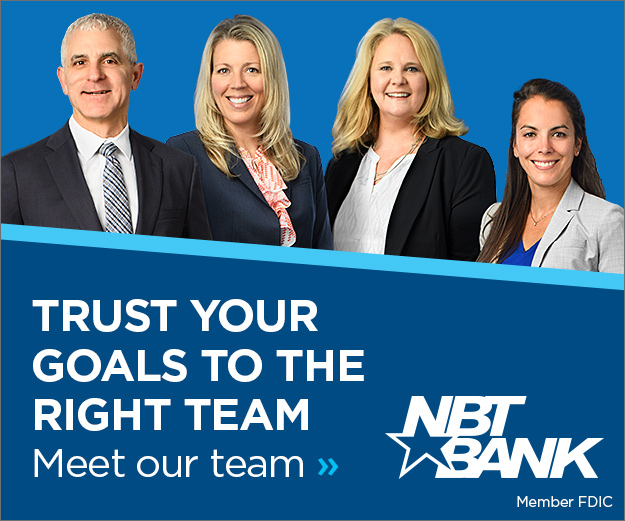
Martha Frankel
“You probably want to know how a nice Jewish girl got into gambling,” says Martha Frankel. “Google ‘Jew’ and ‘addict’ and I come up.”
The author of the memoir “Hats and Eyeglasses,” about growing up in a family of gamblers, will present “A Personal Journey of Gambling Addiction” in Stamford on Jan. 6, sponsored by the Jewish Family Service JPASS program (Jewish Partnership for Addiction Support and Services).
Frankel, an entertainment journalist whose articles have appeared in publications including Cosmopolitan and the New York Post, spoke with the Ledger about getting into, and out of, a life of gambling.
Q: Let’s start with the “nice Jewish girl” question.
A: I grew up after World War II in a close-knit Jewish family in the Bronx, a middle-class family who had some disposable income and started gambling as a fun family thing to do. They’d play cards, and my father and uncle would go to the track twice a week. I was a tomboy and would go with them. My uncle had a very bad gambling problem and was always whispering into the phone. He told us he worked for the CIA. Even as kids, we knew something was wrong, and it was a little scary.
When I grew up, I walked away from that, and married a bookmaker’s son, and saw how devastating gambling could be. In later years, my mother had a gambling problem, before my own gambling problem. All my mother’s friends died in a 20-year period and she was alone. So she would go play Bingo, or the slot machines at casinos, and it wasn’t good. I was doing really well then so I would send her money to make up the difference, which wasn’t a good thing to do but she was an old lady by then and she was my mom and was so funny and great.
The fact that I walked into an addictive gambling thing was ironic because I knew it was addictive. I first learned to play poker when I was in my mid-40s, for a screenplay I was writing; one of the conceits was that a woman character was a poker player. I learned from one of my cousins and started playing a lot and loved it. As long as I stayed in in-person games, it was manageable. But it became so hard to play late at night and then drive home. I found online poker and I wasn’t good at it; I lost consistently from the outset and got into deep debt.
Q: Is gambling a “Jewish thing?”
A: All kinds of people gamble; it’s endemic in every culture. Traditionally, Jews weren’t drinkers, but they were gamblers. It seems like when I talk to Jewish groups about my own family’s gambling, everybody nods their heads in recognition. Everybody’s father gambled, everybody’s mother played Mah Jongg, everybody’s parents went on cruises and gambled. In the Jewish community, gambling is the one addiction that’s smiled upon. Growing up, how often did I hear my grandfather say, “We don’t do that,” meaning, we don’t drink or we don’t beat our wives? But it was always okay to sit down and play a game of Canasta or Gin Rummy together.
During the Depression, many families. had no money and had to stay home every night. The cheapest form of entertainment was a deck of cards and a roll of pennies. My parents’ generation came out of the war and had some disposable income, so they could go to the track. Once, I went with my father and uncle to the track on the second night of Passover, and it was packed, but we heard that it had been completely empty the night before.
Q: How did you get over your addiction to online poker?
A: I went to Gamblers Anonymous, but there was too much cool gambling talk for me. People only talked about gambling, so all I wanted to do was gamble. Telling somebody about the addiction was life-changing for me. Having said it out loud was such a great feeling of release. I would like to say I’d never do it again, but I don’t know, like any other addict. I have an addictive personality, and most of my addictions are healthy and good for me.
Q: What’s your sense of the scope of gambling addiction in the U.S.?
A: In Gamblers Anonymous, it was unbelievable to me: the meeting was full of women and children. Internet gambling is the perfect place for passive gamblers, those people who would sit and pull the handle on a slot machine. Internet gamblers are mostly women – it’s anonymous, you don’t have to face your family, and nobody has to know you’re doing it.
Teens are also showing up at Gamblers Anonymous meetings in droves. Whenever there’s a college suicide, there’s talk about online gambling, because kids rack up big debts on their credit cards from online gambling.
My husband doesn’t gamble on anything; he doesn’t even like sports. But when I started playing poker, I taught him and my godkids so that the four of us could do something fun together. The first night we played, my husband had one 7-card but said he had three 7s and my godson folded. I said, “He might not really have three 7s” and then we had to explain how it’s not okay to lie but it’s okay in poker. We teach kids not to cheat at Monopoly, but that it’s okay with poker. Now my godson is a big gambler and I feel so bad because I know it’s a heady thing for a kid, with the adults clapping for you.
Gambling is one of those things where people have a hard time understanding that it’s an addiction. When you drink, do drugs, or cheat on your marriage, you see the consequences, but gamblers are notorious liars.
Q: What has the response been to your book and talks?
A: When I wrote “Hats and Eyeglasses,” I was very clear that my email and website be listed in the book so that people could contact me. I started hearing from gamblers and their families and got unbelievable letters, 2,000 or 3,000 altogether. Some people wrote, “I love your book, and I can’t wait to learn poker.” And here I thought I’d written a cautionary tale.
When you’re in the throes of the addiction, it’s like being in a room with a door but you can’t see the door. Like every other somebody who gets out of it, it’s so apparent that the door’s been there the whole time. I have a million ideas for those who want help.
If anyone is thinking about coming on Jan. 6 wanting to talk to me, I want to encourage them to please come.
Martha Frankel will speak on Thursday, Jan. 6, 7:30 p.m. at Temple Beth El, 350 Roxbury Road, Stamford; followed by a discussion led by Dr. Laurel Schwartz, coordinator of the Jewish Family Service Jewish Family Life Education program, on addiction and the resources available to help. The event is free; reservations requested, For information: (203) 921-4161, LSchwartz@ctjfs.org. or visit JPASS: www.ctjfs.org








 Southern New England Jewish Ledger
Southern New England Jewish Ledger








